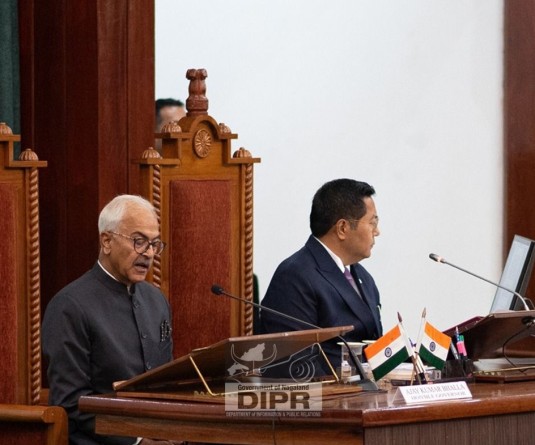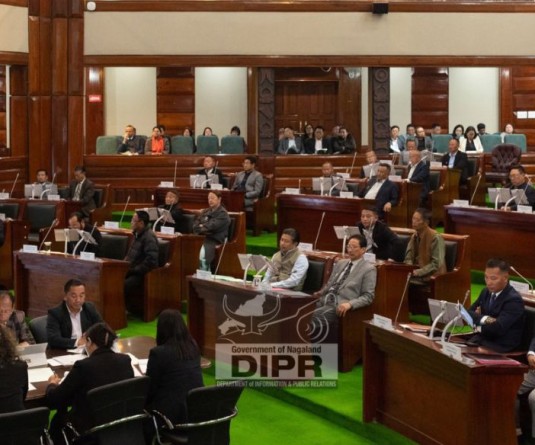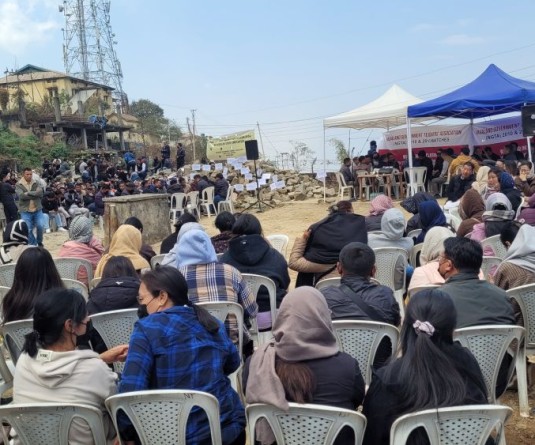
Morung Express News
Dimapur | April 1
The process of reconciliation between Naga national groups, facilitated by the Forum for Naga Reconciliation, has brought relative peace to the land. With political justice and accountability added to the scenario, the stage could be set for peace that could sustain itself in the long run. For now, the attitude of members of the groups, given to years of distance and unaccountable action, has created a rift between them and the common man and woman. Bridging these gaps, an essential today, will require a drastic change in approach and application.
“The approach of the “Naga armies” to any kind of accountability will start from the point of their attitude and behaviour towards collecting the “national tax”,” says Dolly Kikon. “For any authority that collects tax from the public, there should be some form of accountability,” she asserts. President of Naga Hoho, Keviletuo Kiewhuo, agrees. “Any established organization ought to be accountable. There should be preventive measures in place.”
The distrust and fear, created and sustained by the protracted armed conflict, has increased the distance between the national groups and the people. A young man says it is not hard to distinguish someone from a group in public as “do you know who I am” has become their “warning note”. “Their (Naga groups) motives and objectives may be right, but their approach is very narrow and unreasonable, defective for the growth and welfare of people,” he adds. Human rights, at more levels than one, get left behind.
“Their whole organizational set up is militaristic. There is nobody in the organization to approach for issues pertaining to human rights. They function without any fundamental guidelines and apply their own sense of justice and guidelines,” iterates Tungshang Ningreichon, member of the Naga Peoples’ Movement for Human Rights (NPMHR). When issues occur, the platform for redress is narrow and confined. In some cases, some cadre demands for a free autorickshaw or taxi ride in the name of “nationalism”, and in some, joining the movement becomes an escape from debt. This leads the populace to question aspirations. “Has ‘insurgency’, being in factions or Naga groups become a business?” asks a young woman adding, “If people are not willing to answer that then I would ask, where the Naga struggle is now.” She says Naga groups have obtained impunity through a tacit understanding. Human rights violations have gone systematically unaddressed.
“The whole concept of justice needs to be understood when talking about human rights,” says Ningreichon. “We need to understand what justice means to us. We understand punishment as justice… Our society’s form of justice is revenge. It is important to deal with the issue of justice when we talk about the issue of human rights. The two issues should go hand in hand.”
An understanding of the issue of justice, and its contextualization, will go a long way in streamlining any accountability mechanism.
“A good way to start is to set up specific bodies within each group to look into different issues. And not just any bodies, but something that has proper mandate and power; bodies which meet with other social and human rights organizations, and also have interface with the society from time to time,” expounds Ningreichon.
A Naga human rights activist says self reflection is the solution to making oneself accountable. He says the Naga groups act in such authoritative ways because they are so used to it, and the public have gotten complacent to them.
A refreshed attitude, both from the people towards the groups and from the groups towards the people, could change the way peace has been made in this region. “The Indian state has a hand in nurturing these factions to govern the state. Disorder is a good tactic to rule the frontiers,” adds Dolly Kikon. A fresh attitude could rise above this security paradigm, and pave way for people and their movements to escape State made disorder.






